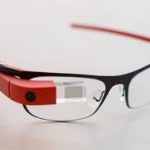WHY GOOGLE GLASS BROKE, BUT IS FAR FROM DEAD
February 10, 2015
 Oh Google Glass. It’s back to the drawing board for the much hyped gadget by Google that took the world by storm. Recently Google announced that the Explorer Program, that me and my colleague Erik van Ommeren were a part of, was killed and that we see Glass back someday in another shape or form. On that note Google Glass was pronounced dead by bloggers and other press from around the world. In my opinion Glass might be broken for now, but it is far from dead.
Oh Google Glass. It’s back to the drawing board for the much hyped gadget by Google that took the world by storm. Recently Google announced that the Explorer Program, that me and my colleague Erik van Ommeren were a part of, was killed and that we see Glass back someday in another shape or form. On that note Google Glass was pronounced dead by bloggers and other press from around the world. In my opinion Glass might be broken for now, but it is far from dead.
more–>
This weekend NYT-writer Nick Bilton had a pretty interesting story on how Glass came out way to fast. The story starts with this intriguing introduction:
This is a story that involves lots of public intrigue, a futuristic wearable technology, a secret laboratory, fashion models, sky divers and an interoffice love triangle that ended a billionaire’s marriage.
But gossip aside, basically the entire story boils down to this quote:
“The team within Google X knew the product wasn’t even close to ready for prime time,” a former Google employee said. The Google marketing team and Mr. Brin had other plans.
To digest all the gossip about the ending of a billionaire’s marriage read the story by Bilton. Lets reserve this blog to talk product. To me the biggest problem with Glass was its positioning as a device that you should wear everyday. The battery level, functionality and design were just not good enough to support that goal. But does that mean Glass is dead? My answer is no. Digital glasses are a great way to interact with information in specific (mostly work-related) contexts. And there is a lot happening in this space.
Google is working on the next Glass
As a consumer device, Google Glass is indeed dead—but only temporarily. Google itself is not simply killing it, they are working on a redesign. The Mountain View giant is moving Glass out of its Google X research lab and into a separate group overseen by Tony Fadell, the father of the Nest smart thermostat. Fadell is teaming up with Ivy Ross, a jewelry designer, so my take is that this will eventually leads to a new design still aimed at regular consumers.
Google Glass at Work was off to a interesting start
Also the Google’s Glass at Work program is still up and running according to a post on Wired in which Ian Shakil, the CEO of Augmedix.com says that his company still has “unimpeded access to Google Glass units and support” to offer Glass software designed to help doctors work effectively with health records. The program has some really interesting partners and applications, specifically in healthcare and other situations where a handsfree U.I. is helpful. In my experience talking to clients also sparked a lot of enthusiasm for business applications.
Glasses are great voor VR and AR
Although both are old concepts both Virtual Reality and Augmented reality are having a great new appeal with the introductions of Oculus Rift, Samsung VR and Microsoft HoloLens. The space is gaining momentum again and glasses are simply the dominant and probably most effective way of interacting with augmented or virtual experiences. Expect to see a lot of cool stuff in this domain.
So to me Glass is far from dead. It’s a interesting case that shows first-mover-advantage is actually not always that much of a advantage. But Glass has taken a sabbatical to most likely come back stronger than ever with a better go-to-market strategy. Now new players, like Epson and Meta, offer computerized headsets that can serve similar markets. This will only drive the market forward. So we haven’t seen the Google Glass endgame. The story is far from over.

 English | EN
English | EN 